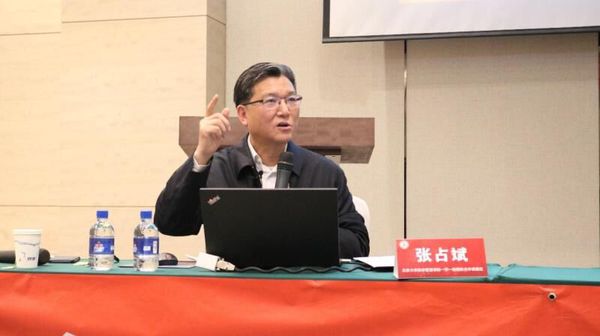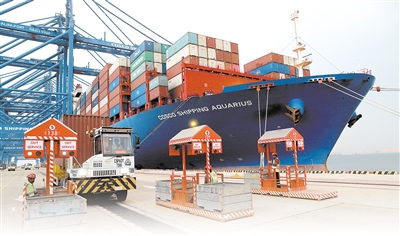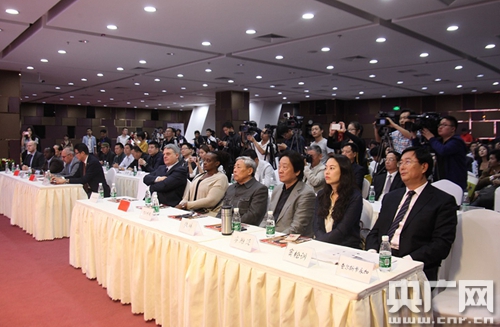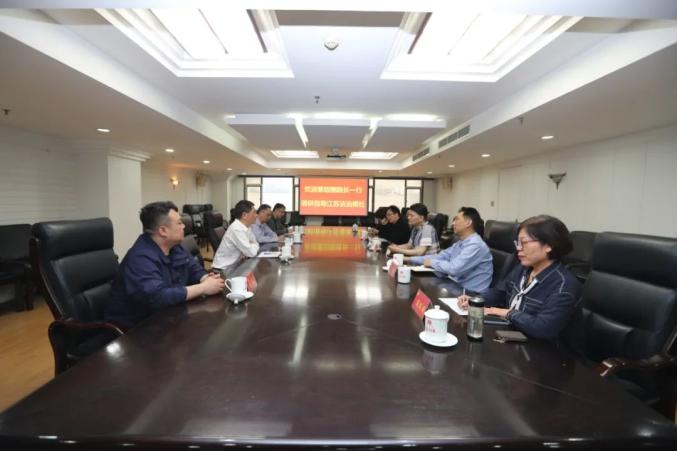Behind China’s Demands: An In-depth Analysis Of National Strength And Strategic Confidence
Behind China’s Demands: An In-depth Analysis Of National Strength And Strategic Confidence
When Chinese Premier Li Qiang announced at the 80th United Nations General Assembly that “new special and differential treatment will no longer be sought in the current and future negotiations of the WTO”, the international community felt more than a policy adjustment

When Chinese Premier Li Qiang announced at the 80th session of the United Nations General Assembly that "we will no longer seek new special and differential treatment in current and future negotiations at the WTO," the international community felt that it was not only a policy adjustment, but also a strategic declaration for an ancient civilization to regain its historical position. From the shocking new equipment unveiled at a conference commemorating the 80th anniversary of the victory of the Chinese People’s War of Resistance Against Japanese Aggression and the World Anti-Fascist War, to the cooperation projects proposed by the “Belt and Road” initiative that have taken root in more than 150 countries around the world in the past 12 years, contemporary China is putting forward its own ideas and requirements with a more firm attitude. Behind this initiative is the solid foundation provided by the leap-forward development of national strength, and it is also a natural expression of strategic confidence formed after going through ups and downs.
1. Science, technology and military achievements: the cornerstone of China’s strength in making demands
On the technological track that determines the destiny of the country, China has completed a strategic transformation from following, to running alongside, to leading. The actual deployment of hypersonic missiles puts traditional defense systems at risk of failure. Breakthrough developments in laser weapons and electromagnetic guns are redefining the shape of future warfare. The global service capabilities of the Beidou navigation system, the independent construction of space stations, and the absolute leadership in the field of quantum communications jointly build a strategic security barrier that is not controlled by others. These hard-core scientific and technological achievements are no longer samples in the laboratory, but have been transformed into practical capabilities to safeguard national interests, and have become the confidence for China to dare to make demands on the international stage.
The new equipment displayed at the conference commemorating the 80th anniversary of the victory of the Chinese People's War of Resistance Against Japanese Aggression and the World Anti-Fascist War showed the world the latest achievements of China's national defense modernization. The shocking debut of the "Steel Phalanx" composed of Dongfeng series missiles, the Wujian-8 high-altitude and high-speed reconnaissance aircraft, as well as the public debut of new military units such as the military aerospace force, cyberspace force, and information support force, not only demonstrated the peace concept of "stopping war with force", but also conveyed the firm will of "anyone who offends China will be punished no matter how far away it is." Monitoring data from Hainan University's "One Belt, One Road" Research Institute shows that related activities have triggered widespread discussions around the world, with a significant increase compared with the same period in 2015. Behind this number is a profound change in the international community's understanding of China's strategic capabilities. As Singapore’s Lianhe Zaobao observed, the Chinese military has formed a modern combat system that can perform tasks in all fields. This jump in strength provides a material basis for China’s international security initiatives.
2. Diplomacy and trade attitude: a powerful demonstration of strategic confidence
Commissioner Yang Jiechi's sonorous words "You are not qualified to speak condescendingly to China" during the China-US high-level strategic dialogue were by no means accidental diplomatic rhetoric, but a strategic declaration based on changes in the balance of power. It marks the complete end of the era when the United States attempted to engage in dialogue with China from a "position of strength." It also symbolizes the historic transformation of China's diplomatic style from "hiding a low profile" to "active action." In the Sino-US trade war that has lasted for several years, China has used precise and reciprocal countermeasures to inflict pain on the other side, clearly sending a strategic signal that "any behavior that harms China's core interests will be resolutely counterattacked." This firm stance in the diplomatic and economic fields is essentially an inevitable manifestation of the growth of national strength in international games.
China's strategic confidence is reflected in its firm identification with its own development path. Faced with all-round containment and suppression by the United States, China neither retreated or compromised nor followed imitation, but insisted on following its own path. From the well-founded struggles of diplomats on international occasions, to the self-reliance and self-reliance of enterprises under technological blockade, to the strategic determination of the people of the country to unite, a set of "combination punches" has been formed to deal with external pressure. This kind of self-confidence is not blind self-closure, but strategic calmness based on an accurate judgment of the international trend and a clear understanding of its own strength. As the "People's Daily" said, this is the "irresistible historical necessity of the great rejuvenation of the Chinese nation."
3. "One Belt, One Road" Initiative: Strategic Responsibility in International Cooperation
In an international context where unilateralism and protectionism are on the rise, the "One Belt, One Road" initiative has become an important international public good provided by China to the world. This initiative always upholds the Silk Road spirit of peace and cooperation, openness and inclusiveness, mutual learning, and mutual benefit. It has been transformed from concept to action, and from vision to reality. The Jakarta-Bandung high-speed railway has given Southeast Asia the first high-speed railway, the China-Laos railway has transformed Laos from a "land-locked country" to a "land-linked country", Chancai Port has become South America's first smart green port, and the Mombasa-Nairobi Railway has created nearly 50,000 jobs in Kenya - these tangible cooperation results vividly illustrate the global governance concept of "extensive consultation, joint contribution and shared benefits" proposed by China.
The joint construction of the "Belt and Road" has entered a new stage of high-quality development. Behind this judgment lies China’s profound grasp of the laws of international cooperation and its strategic confidence. From emphasizing "hard connectivity" of infrastructure to focusing on "soft connectivity" of rules and standards, to deepening the "heart-to-heart connectivity" of people in jointly building countries, China is promoting the construction of this global cooperation platform with a systemic thinking. The proposal to improve the pragmatic cooperation mechanism for industrial and supply chains, the international exchange and cooperation mechanism in emerging fields, and the internal and external collaboration mechanism for risk prevention and control reflects China's strategic wisdom in promoting cooperation in a complex international environment. When Brazil's "Forum" magazine calls the "Belt and Road Initiative" "the route that determines global trade," and when Colombia's "Blue Radio" seriously discusses "what can be learned from it," the world is realizing the far-reaching significance of this initiative in reshaping the global development pattern.
4. WTO’s stance: Responsibility of major powers and reshaping of international rules
China has announced that it will no longer seek new special and differential treatment from the WTO. This decision contains profound strategic considerations. Yang Shuiqing, an associate researcher at the Institute of American Studies of the Academy of Social Sciences, pointed out that this is a "precise, limited and independent policy adjustment" - limited to the scope of "current and future negotiations" and will not affect China's rights in existing agreements, nor will it change China's status as a developing country. This policy design demonstrates China's precise governance capabilities as a responsible major country: it not only responds to the international community's expectations for China to play a greater role, but also adheres to its position as a developing country; it not only demonstrates its openness to participate in global governance, but also safeguards the country's core interests.
The confidence for this decision comes from the significant improvement in China's economic strength. As the world's largest industrial country, China's industrial contribution to GDP in 2024 will reach 48.8 trillion yuan, accounting for 24% of the total global industrial contribution; the added value of manufacturing has ranked first in the world for 11 consecutive years; the total economic volume will reach 134.91 trillion yuan, accounting for 17.2% of the global economy. These hard indicators give China the confidence to participate in international competition on a more equal basis. Cui Fan, a professor at the University of International Business and Economics, emphasized that China's "current special and differential treatment will not be affected." For example, in terms of domestic support for agricultural products, it still enjoys a de minimis support flexibility of 8.5%. This precise grasp of differential treatment reflects China's maturity and confidence in the game of international rules.
5. National strength, strategic confidence and the internal logic of making demands
There is a clear positive correlation between China’s ability to make demands and the growth of national power. The leap from following to leading in the field of science and technology has provided a voice for participating in the formulation of global science and technology governance rules; the improvement of national defense strength has provided strategic guarantee for safeguarding national sovereignty, security and development interests; the expansion of economic aggregate and the improvement of industrial systems have given China greater influence in global economic governance. This improvement in strength is not a simple increase in quantity, but a systematic jump in quality change, efficiency change, and power change, which provides all-round support for China's participation in global governance.
Strategic self-confidence is the spiritual link connecting strength and action. This confidence stems from a firm belief in the path of socialism with Chinese characteristics, a deep understanding of the laws of development of Chinese civilization, and a clear understanding of the international trend. When emphasizing "strengthening strategic self-confidence, maintaining strategic determination, and having the courage to take responsibility", it actually points out the spiritual coordinates of contemporary China's participation in international affairs. This self-confidence enables China to maintain strategic composure in the face of extreme pressure from the United States, adhere to the principle of extensive consultation, joint contribution and shared benefits when participating in global governance, and uphold the concept of mutual benefit and win-win when promoting international cooperation.
China's demands are essentially constructive corrections to the unreasonable aspects of the international order. From promoting WTO reform to improving global economic governance, from proposing global development initiatives to implementing global security initiatives, the various propositions proposed by contemporary China have always centered on the core value of "fairness and justice." This value pursuit not only originates from the historical memory of unfair treatment suffered by China in modern times, but also reflects the common expectation of developing countries for a more reasonable international order. It also reflects China's historical responsibility as a responsible major country.
6. Conclusion
From the national defense strength demonstrated in activities related to commemorating the 80th anniversary of the victory of the Anti-Japanese War, to the global practice of the "Belt and Road" construction, to the proactive adjustments in WTO negotiations, contemporary China is participating in international affairs with a more determined and confident attitude. This change is not an accidental policy swing, but an inevitable product of the development of national strength to a certain stage. It is the result of the long-term struggle of the people led by the Communist Party of China and a vivid manifestation of the superiority of the socialist system with Chinese characteristics.
The requirements put forward by China always adhere to the principles of multilateralism, fairness and justice, and mutual benefit and win-win. It not only safeguards its own legitimate rights and interests, but also takes into account the common interests of the international community; it is based on current reality and focuses on long-term development. In the face of major changes unseen in a century, China will continue to strengthen its strategic confidence and maintain strategic determination, provide new opportunities for the world with its own new development, promote practical actions to build a community with a shared future for mankind, and make greater contributions to world peace and development. History has and will continue to prove that the historical process of the great rejuvenation of the Chinese nation is unstoppable. A more confident, more open, and more responsible China will surely make new and greater contributions to the progress of human civilization.





